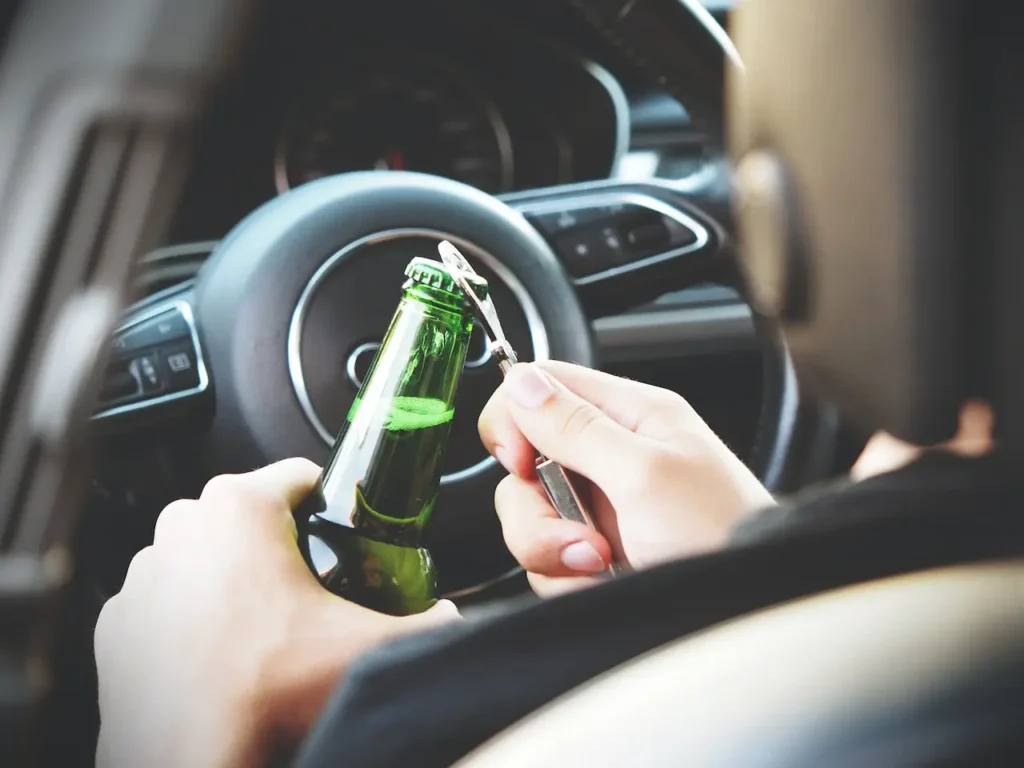
Arrested for DUI: Will You Lose Your Job?
Being arrested for DUI, also known as driving under the influence, is a serious offense that can have far-reaching consequences beyond the legal realm. In North Carolina, as in many other states, a DUI conviction can have a significant impact on various aspects of your life, from your finances to your relationships to your employment.
At Van Camp, Meacham & Newman PLLC, our DWI defense attorneys walk their clients through the potential ramifications of a DUI arrest on your job in North Carolina. Let's review the legal framework, employer discretion, and steps you can take to mitigate the fallout.

Table of Contents
Will You Lose Your Job If You’ve Been Arrested for DUI?
The short answer: In some cases, you may lose your job if you’ve been arrested for a DUI. This isn’t to say that you definitely will, but there are certain roles and positions that cannot be held or maintained if you’ve been arrested for DUI. If you are concerned about losing your job as a result of a DUI or DWI, consult our DUI lawyers.
We offer free 30-minute initial consultations. While our DUI lawyers are based in North Carolina, our law firm practices DWI defense law and employment law throughout the United States.
Jobs You Cannot Hold if You’ve Been Arrested for DUI
Jobs with Specific Employee Contracts
North Carolina is an “at-will” state, and that means an employer has the right to fire an employee at any time, regardless of cause.
If there is a clause in your employment contract explicitly stating that your employment will be terminated in the event of an arrest, you could lose your job as a result of being arrested for DUI.
Make sure you read your employee contract carefully, to be sure you’re in compliance with your company's rules and regulations.
Jobs in Transportation
Some jobs, such as bus driver, cab driver, or pilot, simply cannot be maintained once you have been arrested and convicted of a DUI in North Carolina. Since an arrest is accompanied by a temporary or permanent loss of a driver's license, that driver will not be able to fulfill their job responsibilities.
Penalties can be even more serious for those who hold commercial driver's licenses (CDL), like truck drivers. For these drivers, a first offense can result in a loss of their CDL for up to one year. A second offense will lead to a permanent loss of a CDL.
Jobs That Require Driving
Even if driving isn’t the main component of the job description, there are plenty of jobs that require driving. If, for instance, you travel for work or use a company car, your employer or even the insurance companies they work with may deem you too risky to insure. This can make it impossible to do your job and lead to termination.
Jobs That Require Professional Licenses
Some professional licenses required by roles such as nurse, doctor, or lawyer may be given out by professional agencies that deem any arrest reason enough to revoke their license.
If that happens and the job in question requires that license, it can swiftly lead to a loss of employment.
Jobs That Hold Employees to a Higher Standard
Positions in the public eye are probably the most commonly noted example of this: In some cases, the fact of an arrest or conviction is enough to cast doubt on a person and their ability to do their job. Even a first-time offense can be enough to ruin the careers of those running for public office, for instance.
Other Circumstances
After being arrested for DUI, you may find yourself having to make time for everything from court proceedings to court-ordered community service to probation appointments. Those can be difficult to integrate into a traditional work schedule, and in some cases employers will choose to end someone's employment rather than give them time off for these required meetings.
Again, remember that North Carolina is an “at-will” employment state. An employer has the right to let an employee go for any reason, as long as the reason is not illegal.
Legal and Administrative Penalties for Being Arrested for DUI
On top of potential consequences with your employer, there are a number of legal and administrative penalties you may face when arrested for DUI.
The specific penalties for a DUI depend on the circumstances, though all DUI arrests are taken extremely seriously. Factors that are taken into account when determining the legal and monetary consequences of a DUI arrest and conviction include:
- The number of previous offenses
- The circumstances of the arrest
- Whether or not aggravating factors are present
Let’s take a closer look at the penalties for being arrested for a DUI at each level.
Number of Offenses
The number of DUI offenses previously accrued has an effect on the severity of the penalties.
Arrested for DUI: First Offense
If you are arrested for a DUI in North Carolina and it’s your first offense, the penalties may include:
- A 30-day license suspension
- Up to $200 in fines and fees
- Up to three years of probation
- Up to 60 days in jail
Arrested for DUI: Second Offense
Being arrested for a DUI and convicted for a second time carries even harsher consequences, which may include:
- License suspension for up to one year
- Fines of up to $2,000
- Probation for up to five years
- A minimum of seven days in jail with a maximum of a year in jail
Arrested for DUI: Third Offense
A third DUI arrest and conviction in North Carolina again increases the severity of penalties. They include:
- Permanent revocation of your driver's license
- Fines of up to $4,000
- Probation for up to five years
- A minimum of 30 days in jail with a maximum of two years in jail
Aggravating Factors
In North Carolina, the severity of the penalties for being arrested for a DUI and convicted will increase if the judge determines that there were aggravating factors present. Those include:
- A BAC of .15 or higher
- Driving without a license
- Illegally passing a school bus
- Driving 30 mph over the speed limit
- Causing a car accident
- Speeding in an attempt to flee or to elude arrest
If you've been involved in an accident as a result of a DUI, contact a car accident lawyer immediately. If you're not sure what a car accident lawyer can do to help, know that an attorney will walk you through what you can do to protect your best interests.
Grossly Aggravating Factors
In addition to aggravating factors, judges take into account circumstances known as “grossly aggravating factors”, if they are present.
DUI’s that include grossly aggravating factors are extremely serious, and often come with increased penalties. They might include:
- Having a child under the age of 18 in the car
- Serious injury to another person
- DUI while driving with a license that is suspended on a previous DUI conviction
- A prior DWI conviction within the last 7 years
FAQ
Is a DUI a felony in North Carolina?
There are some circumstances in which a DUI charge is considered a felony in North Carolina. This mainly applies to instances in which aggravating or grossly aggravating factors are involved.
For instance, if the driver has been convicted of a DUI three or more times in the past 10 years if the driver seriously injured or killed someone while under the influence, or if there was a child under the age of 18 in the vehicle with the driver.
You can learn more about the North Carolina DUI laws on the North Carolina Department of Public Safety website.
Do I have to disclose my DUI arrest to my employer in North Carolina?
Most jobs in North Carolina do not require that employees disclose a DUI arrest—with a few exceptions.
- If your employer or company specifically states in their employer contract or handbook that employees must disclose certain arrests and convictions. In these cases, read the handbook carefully to be sure you know which offenses need to be disclosed, and whether they are referring to convictions, arrests, or both.
- Those whose jobs require them to drive, like postal workers and truck drivers, will need to disclose their DUI to their company for insurance purposes. This also goes for any person who uses a company car.
- Those in the military will be required to report a DUI to their chain of command.
- Some jobs limit certain levels of security clearance to those with a completely clean record, devoid of arrests and convictions. Read your company's security clearance guidelines carefully to be sure a DUI arrest does not compromise your level of clearance.
- Doctors, nurses, lawyers, and other professionals that need certain professional licenses to practice, may have to report their DUI arrest or conviction to their licensing board.
Can I get my DUI conviction expunged?
In North Carolina, expungement is not offered for DUI convictions, even after the state’s 10-year look-back period (the length of time that a court will take into account when considering previous offenses). A DUI will stay on your record for your lifetime, with a few exceptions.
If your charges are dropped, or you are found not guilty, though, you may be eligible for an expungement in North Carolina. Learn more about how long a DWI stays on your record in North Carolina.
Attorneys for North Carolina Drivers Arrested for DUI
While a DUI charge is an extremely serious one and should be treated as such, it doesn't have to define you, and you don't have to face it alone. Our DUI attorneys at Van Camp, Meacham & Newman in Pinehurst are committed to providing you with the support and expertise you need to navigate this challenging time.
Schedule a free 30-minute initial consultation with us by contacting our firm online, or calling us at 910-295-2525.
Disclaimer: The information seen on this website, including the article above, is not legal advice or legal counsel. If you wish to speak to a DUI lawyer or DWI defense attorney in Raleigh, Fayetteville, Pinehurst, Sanford, and beyond, contact our North Carolina attorneys directly using our online form or by calling 910-295-2525.

